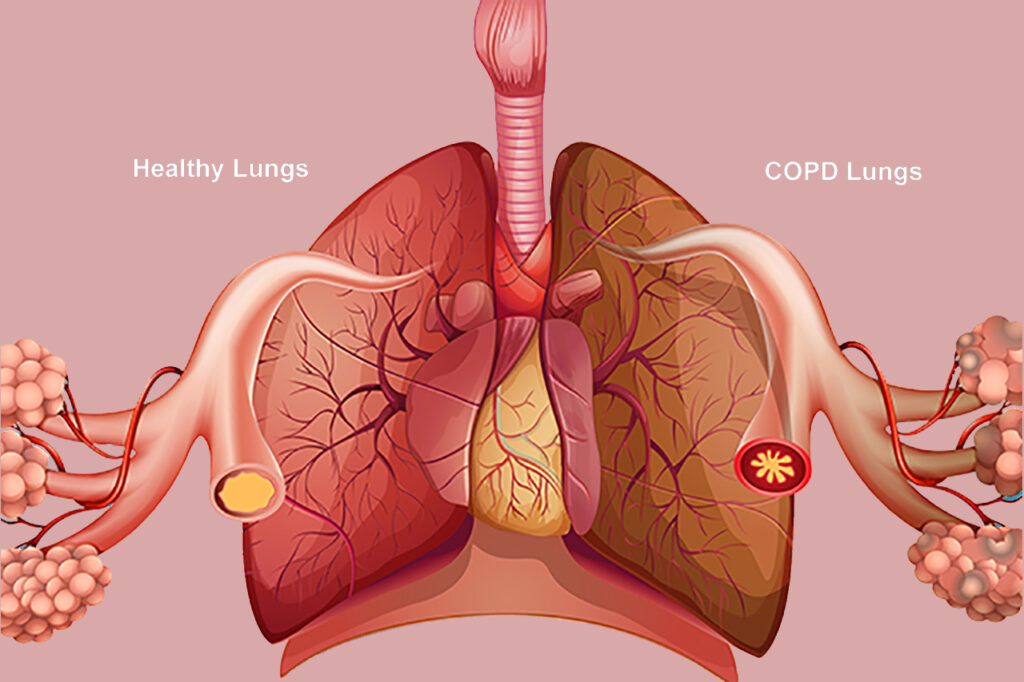What Is Diabetics
Diabetes mellitus, commonly known as diabetes, is a metabolic disease that causes high blood sugar. The hormone insulin moves sugar from the blood into your cells to be stored or used for energy. With diabetes, your body either doesn’t make enough insulin or can’t effectively use the insulin it does make.
Untreated high blood sugar from diabetes can damage your nerves, eyes, kidneys, and other organs.
There are a few different types of diabetes:
Type 1 Diabetes
Type 1 diabetes is an autoimmune disease. The immune system attacks and destroys cells in the pancreas, where insulin is made. It’s unclear what causes this attack. About 10 percent of people with diabetes have this type.
Type 2 Diabetes
Type 2 diabetes occurs when your body becomes resistant to insulin, and sugar builds up in your blood.
Prediabetes
Prediabetes occurs when your blood sugar is higher than normal, but it’s not high enough for a diagnosis of type 2 diabetes.
Gastational
Gestational diabetes is high blood sugar during pregnancy. Insulin-blocking hormones produced by the placenta cause this type of diabetes.
A rare condition called diabetes insipidus is not related to diabetes mellitus, although it has a similar name. It’s a different condition in which your kidneys remove too much fluid from your body.
Causes Of Diabetes
Different causes are associated with each type of diabetes.
Type 1 diabetes
Doctors don’t know exactly what causes type 1 diabetes. For some reason, the immune system mistakenly attacks and destroys insulin-producing beta cells in the pancreas.
Genes may play a role in some people. It’s also possible that a virus sets off the immune system attack.
Type 2 diabetes
Type 2 diabetes stems from a combination of genetics and lifestyle factors. Being overweight or obese increases your risk too. Carrying extra weight, especially in your belly, makes your cells more resistant to the effects of insulin on your blood sugar.
This condition runs in families. Family members share genes that make them more likely to get type 2 diabetes and to be overweight.
Gestational diabetes
Gestational diabetes is the result of hormonal changes during pregnancy. The placenta produces hormones that make a pregnant woman’s cells less sensitive to the effects of insulin. This can cause high blood sugar during pregnancy.
Women who are overweight when they get pregnant or who gain too much weight during their pregnancy are more likely to get gestational diabetes.
Symptoms Of Diabetes
The general symptoms of diabetes include:
- increased hunger
- increased thirst
- weight loss
- frequent urination
- blurry vision
- extreme fatigue
- sores that don’t heal
In addition to the general symptoms of diabetes, men with diabetes may have a decreased sex drive, erectile dysfunction (ED), and poor muscle strength.
Women with diabetes can also have symptoms such as urinary tract infections, yeast infections, and dry, itchy skin.
Type 1 diabetes
Symptoms of type 1 diabetes can include:
- extreme hunger
- increased thirst
- unintentional weight loss
- frequent urination
- blurry vision
- tiredness
It may also result in mood changes.
Type 2 diabetes
Symptoms of type 2 diabetes can include:
- increased hunger
- increased thirst
- increased urination
- blurry vision
- tiredness
- sores that are slow to heal
It may also cause recurring infections. This is because elevated glucose levels make it harder for the body to heal.
Gestational diabetes
Most women with gestational diabetes don’t have any symptoms. The condition is often detected during a routine blood sugar test or oral glucose tolerance test that is usually performed between the 24th and 28th weeks of gestation.
In rare cases, a woman with gestational diabetes will also experience increased thirst or urination.
Best Treatments For Diabetes
Doctors treat diabetes with a few different medications. Some of these drugs are taken by mouth, while others are available as injections.
Type 1 diabetes
Insulin is the main treatment for type 1 diabetes. It replaces the hormone your body isn’t able to produce.
There are four types of insulin that are most commonly used. They’re differentiated by how quickly they start to work, and how long their effects last:
- Rapid-acting insulin starts to work within 15 minutes and its effects last for 3 to 4 hours.
- Short-acting insulin starts to work within 30 minutes and lasts 6 to 8 hours.
- Intermediate-acting insulin starts to work within 1 to 2 hours and lasts 12 to 18 hours.
- Long-acting insulin starts to work a few hours after injection and lasts 24 hours or longer.
Type 2 diabetes
Diet and exercise can help some people manage type 2 diabetes. If lifestyle changes aren’t enough to lower your blood sugar, you’ll need to take medication.
These drugs lower your blood sugar in a variety of ways:
| Types of drug | How they work | Example(s) |
| Alpha-glucosidase inhibitors | Slow your body’s breakdown of sugars and starchy foods | Acarbose (Precose) and miglitol (Glyset) |
| Biguanides | Reduce the amount of glucose your liver makes | Metformin (Glucophage) |
| DPP-4 inhibitors | Improve your blood sugar without making it drop too low | Linagliptin (Tradjenta), saxagliptin (Onglyza), and sitagliptin (Januvia) |
| Glucagon-like peptides | Change the way your body produces insulin | Dulaglutide (Trulicity), exenatide (Byetta), and liraglutide (Victoza) |
| Meglitinides | Stimulate your pancreas to release more insulin | Nateglinide (Starlix) and repaglinide (Prandin) |
| SGLT2 inhibitors | Release more glucose into the urine | Canagliflozin (Invokana) and dapagliflozin (Farxiga) |
| Sulfonylureas | Stimulate your pancreas to release more insulin | Glyburide (DiaBeta, Glynase), glipizide (Glucotrol), and glimepiride (Amaryl) |
| Thiazolidinediones | Help insulin work better | Pioglitazone (Actos) and rosiglitazone (Avandia) |
You may need to take more than one of these drugs. Some people with type 2 diabetes also take insulin.
Gestational diabetes
You’ll need to monitor your blood sugar level several times a day during pregnancy. If it’s high, dietary changes and exercise may or may not be enough to bring it down.
According to the Mayo Clinic, about 10 to 20 percent of women with gestational diabetes will need insulin to lower their blood sugar. Insulin is safe for the growing baby.
Best Diet For Diabetes
Healthy eating is a central part of managing diabetes. In some cases, changing your diet may be enough to control the disease.
Type 1 diabetes
Your blood sugar level rises or falls based on the types of foods you eat. Starchy or sugary foods make blood sugar levels rise rapidly. Protein and fat cause more gradual increases.
Your medical team may recommend that you limit the number of carbohydrates you eat each day. You’ll also need to balance your carb intake with your insulin doses.
Work with a dietitian who can help you design a diabetes meal plan. Getting the right balance of protein, fat, and carbs can help you control your blood sugar. Check out this guide to starting a type 1 diabetes diet.
Type 2 diabetes
Eating the right types of foods can both control your blood sugar and help you lose any excess weight.
Carb counting is an important part of eating for type 2 diabetes. A dietitian can help you figure out how many grams of carbohydrates to eat at each meal.
In order to keep your blood sugar levels steady, try to eat small meals throughout the day. Emphasize healthy foods such as:
- fruits
- vegetables
- whole grains
- lean protein such as poultry and fish
- healthy fats such as olive oil and nuts
Certain other foods can undermine efforts to keep your blood sugar in control. Discover the foods you should avoid if you have diabetes.
Gestational diabetes
Eating a well-balanced diet is important for both you and your baby during these nine months. Making the right food choices can also help you avoid diabetes medications.
Watch your portion sizes, and limit sugary or salty foods. Although you need some sugar to feed your growing baby, you should avoid eating too much.
Consider making an eating plan with the help of a dietitian or nutritionist. They’ll ensure that your diet has the right mix of macronutrients. Go here for other do’s and don’ts for healthy eating with gestational diabetes.
Diagnosis For Diabetes
Anyone who has symptoms of diabetes or is at risk for the disease should be tested. Women are routinely tested for gestational diabetes during their second or third trimesters of pregnancy.
Doctors use these blood tests to diagnose prediabetes and diabetes:
- The fasting plasma glucose (FPG) test measures your blood sugar after you’ve fasted for 8 hours.
- The A1C test provides a snapshot of your blood sugar levels over the previous 3 months.
To diagnose gestational diabetes, your doctor will test your blood sugar levels between the 24th and 28th weeks of your pregnancy.
- During the glucose challenge test, your blood sugar is checked an hour after you drink a sugary liquid.
- During the 3 hour glucose tolerance test, your blood sugar is checked after you fast overnight and then drink a sugary liquid.
The earlier you get diagnosed with diabetes, the sooner you can start treatment. Find out whether you should get tested, and get more information on tests your doctor might perform.
Type 1 diabetes isn’t preventable because it’s caused by a problem with the immune system. Some causes of type 2 diabetes, such as your genes or age, aren’t under your control either.
Yet many other diabetes risk factors are controllable. Most diabetes prevention strategies involve making simple adjustments to your diet and fitness routine.
If you’ve been diagnosed with prediabetes, here are a few things you can do to delay or prevent type 2 diabetes:
- Get at least 150 minutes per week of aerobic exercise, such as walking or cycling.
- Cut saturated and trans fats, along with refined carbohydrates, out of your diet.
- Eat more fruits, vegetables, and whole grains.
- Eat smaller portions.
- Try to lose 7 percentTrusted Source of your body weight if you’re overweight or obese.
These aren’t the only ways to prevent diabetes. Discover more strategies that may help you avoid this chronic disease.




